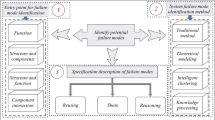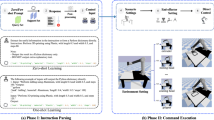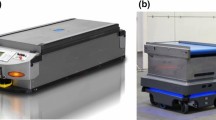Abstract
The control of manufacturing systems is characterised by the need to make a compromise between conflicting goals. Traditional research concentrates on steady-state optimisation of single objectives that are not necessarily relevant to decision making in a production environment. The advent of flexible manufacturing systems (FMSs) with automated material handling and limited buffer space highlights the need to provide computationally-efficient solutions to work out scheduling and dispatch problems for real-time applications.
The authors have adopted a knowledge-based approach to achieve effective real-time FMS control. In the context of the current system status and planned system activities, short-term goals are identified which lead to appropriate jobdispatch decisions. This approach has been implemented in a prototype control system written in Prolog. To obtain knowledge in this area of scarce expertise, a “define-build-learn” cycle was adopted. First, functional concepts are defined and built into the control system, then the corresponding system characteristics are studied and the results used for further cycles of concept definition and building.
This paper describes the development of this operational system.
Similar content being viewed by others
References
D. T. N. Williamson, “System 24—a new concept of manufacture”,Proceedings of the Eighth International Machine Tool Design and Research Conference, pp. 327–76, September 1967.
D. T. N. Williamson, “New wave in manufacturing”,American Machinist, pp. 143–54, 11 September 1967.
J. J. Solbert, “A mathematical model of computerized manufacturing systems”,Proceedings of the Fourth International conference on Production Research, Tokyo, pp. 1265–75, August 1977.
A.S. Carrie, E. Adhmai, A. Stephens and I. C. Murdoch, “Introducing a flexible manufacturing system”,Proceedings of the Seventh International Conference on Production Research, University of Windsor, Canada, pp. 577–83, August 1983.
“KTM manufacturing systems”, Kearney & Trecker Marwin Limited (sales literature).
J. Schuster and M. Cziudaj, “The efficiency and economy of flexible automated manufacturing systems”, Werner & Kolb Werkzeugmaschinen GmbH (sales literature).
R. W. Conway, W. L. Maxwell and L. W. Miller,Theory of Scheduling, Addison-Wesley, 1967.
S. S. Panwalker and W. Iskander, “A survey of scheduling rules’,Operations Research, 25(1), pp. 45–61, 1977.
A. S. Kiran and M. L. Smith, “Simulation studies in job shop scheduling”,Computer and Industrial Engineering, 8(2), pp. 87–105, 1984.
K. E. Stecke and J. J. Solberg, “Loading and control policies for a flexible manufacturing system”,International Journal of Production Research, 19(5), pp. 481–90, 1981.
P. J. O'grady, H. Bao and K. H. Lee, “Issues in intelligent cell control for flexible manufacturing system”,Computers in Industry, 9, pp. 25–36, 1987.
J. Browne, D. Dubois, K. Rathmill, S. P. Sethi and K. E. Stecke, “Classification of flexible manufacturing systems”,FMS Magazine, pp. 114–17, April 1984.
M. S. Fox, B. Allen and G. Strohm, “Job shop scheduling: an investigation in constraint-directed reasoning”,Proceedings of the Second National Conference on Artificial Intelligence, pp. 155–8, August 1982.
S. Subramanyam and R. G. Askin, “An expert systems approach to scheduling in flexible manufacturing systems” inFlexible Manufacturing Systems: Methods and Studies, Elsevier, pp. 243–56, 1986.
S. M. Alexander, “An expert system for the selection of scheduling rules in a job shop”,Computers and Industrial Engineering, 12(3), pp. 167–71, 1987.
D. Ben-Arieh, “Manufacturing system application of a knowledge based simulation”.Proceedings of the Eighth Annual Conference on Computers and Industrial Engineering, pp. 459–63, 1986.
R. Suri and C. K. Whitney, “Decision support requirements in flexible manufacturing”,Journal of Manufacturing Systems, 3(1), pp. 61–9, 1984.
I. S. Fan and P. J. Sackett, “A PROLOG simulator for interactive flexible manufacturing systems control”Simulation, 50(6), pp. 239–47, 1988.
J. C. Ammons, T. Govindaraj and C. M. Mitchell, “Human-aided scheduling for FMS: a paradigm for human-computer interaction in real time scheduling and control”,Proceedings of the Second ORSA/TIMS Conference on FMS: Operations Research Models and Applications, pp. 443–53, August 1986.
P. J. Sackett and P. Rowlinson, “CIM technology and the role of the industrial engineer”,Proceedings of the Third International Conference on Human Factors in Manufacturing, pp. 359–66, November 1986.
Author information
Authors and Affiliations
Rights and permissions
About this article
Cite this article
Sackett, P.J., Fan, I.S. The control of a flexible manufacturing system by short-term goal identification. Int J Adv Manuf Technol 4, 123–143 (1989). https://doi.org/10.1007/BF02601515
Accepted:
Issue Date:
DOI: https://doi.org/10.1007/BF02601515




